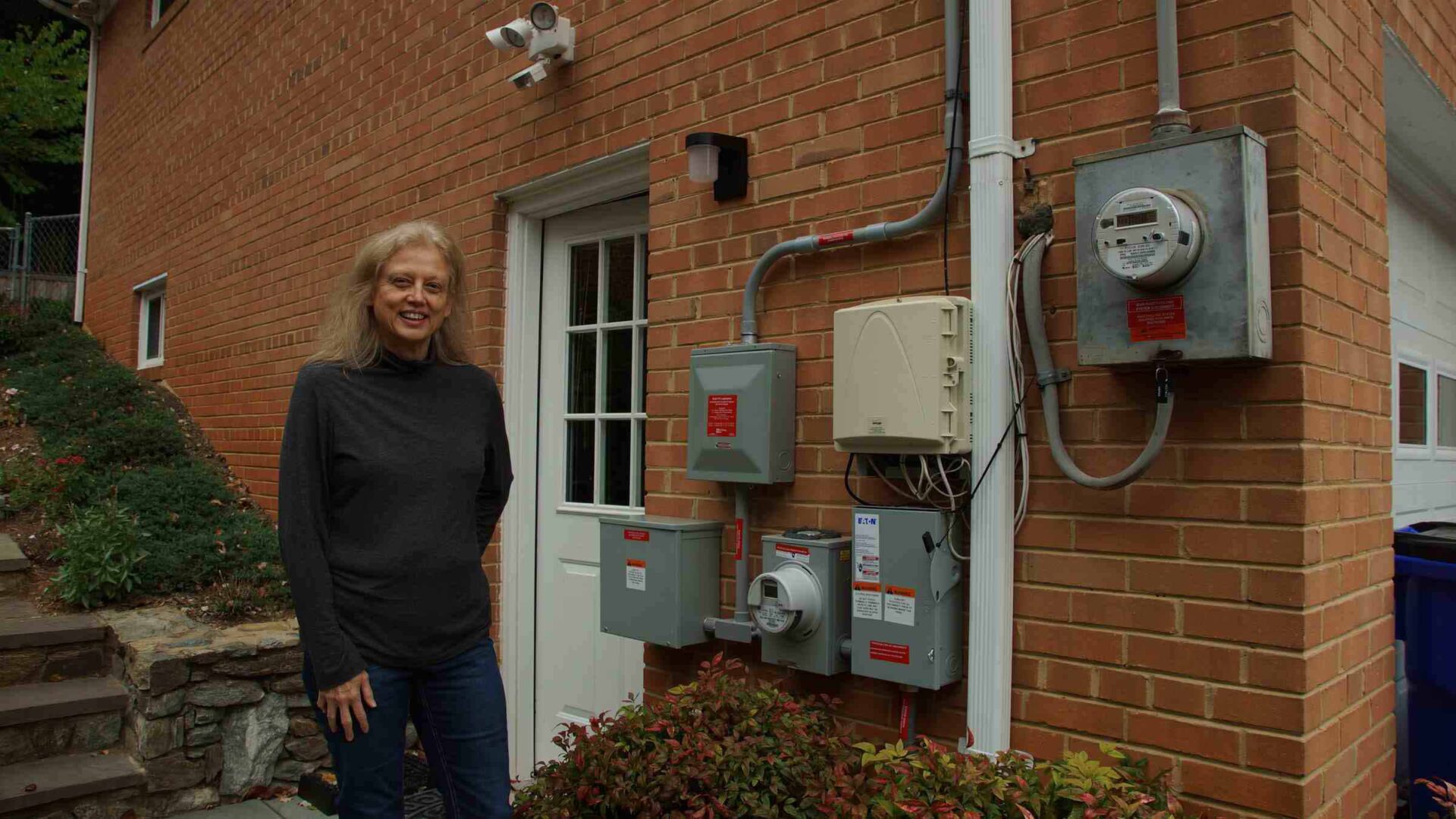Net metering in Pennsylvania
- Factsheet

What is net metering?
Net metering is the policy that allows people with solar to get a credit on their electric bill for the energy they produce from their system.
Net metering in Pennsylvania
System specifics include:
- System capacity limit:
- 50 kilowatts (kW) for Residential systems
- 3 megawatts (MW) for Non-residential systems
- 5 MW for micro-grid and emergency systems
- Monthly excess generation credit rate: Full retail
- Annual excess generation credit rate: Price-to-compare rate (generation and transmission, reconciled yearly)
- State-wide net metering cap: None specified
- Applicable utilities: Investor-owned utilities
- Policies expanding net metering: Virtual meter aggregation
- Additional barriers: Annual excess generation rate should be increased to full retail. 50 kW limit should be lifted on residential systems. Customers of rural electric cooperatives and municipal utilities are not guaranteed net metering. Customers of alternative energy suppliers (for example, found through PA Power Switch) are not guaranteed net metering.
- Third-Party Ownership: Third-party ownership models, such as power purchase agreements and solar leases, are allowed for net metered systems.
Pennsylvania Code Chapter 75.11 establishes the rules of net metering in Pennsylvania. Residential customers of all investor-owned utilities with system capacity up to 50 kW may net meter. Electric generation suppliers that are not a customer’s default service provider are not required to net meter.
To qualify for net metering, the customer must consume energy on the property where generation occurs, not just to operate the generating system.
Billing and compensation
Utility customers with net metered systems will be credited for each kilowatt-hour produced by their system. Each month, they will be billed for the number of kilowatt-hours they used minus the number of kilowatt-hours generated. If what your system generates exceeds your usage for a given month, you will receive a credit for each excess kilowatt-hour, which will be applied in later months when you generate less electricity than you consume.
Utilities may not charge net metering customers fees that they would not charge a non-net metered customer without the approval of the PSC. At the end of each 12-month billing cycle, utilities will compensate net-metered generators for their excess credits at the “price-to-compare”, which equals the retail price of the electricity minus the distribution component.
Other types of net metering in Pennsylvania
Virtual meter aggregation: Both are allowed for properties owned by the same customer. The properties must be within the same utility’s service zone and within two miles of the property where generation occurs.
Take action
Having trouble interconnecting your system?
If you’re having trouble with net metering or getting your system interconnected, post to the Solar United Neighbors of Pennsylvania listserv to get help.
File a complaint
Our utilities exist to serve their customers. If you have a problem your utility is not quickly resolving, file a complaint with the Pennsylvania Public Utility Commission.
Pennsylvania resources
- PUC Order on Net Metering – Use of Third Party Operators
- Citizens’ Electric Company of Lewisburg interconnection information
- Duquesne Light Company interconnection information
- Pennsylvania Power Company (Penn Power) interconnection information
- Metropolitan Edison Company (Met-Ed) interconnection information
- Pennsylvania Electric Company (PENELEC) interconnection information
- PPL Electric distributed generation resources
- PECO distributed generation resources
- Pike County Light & Power Company interconnection information
- UGI interconnection information
- Wellsboro Electric Company interconnection information
- West Penn Power interconnection information
Go solar in Pennsylvania!
Get the latest on solar straight to your inbox.
Fight for your solar rights.
Everyone has the right to go solar. Spread the sunshine nationwide and in your local community by taking action, joining events, and more.